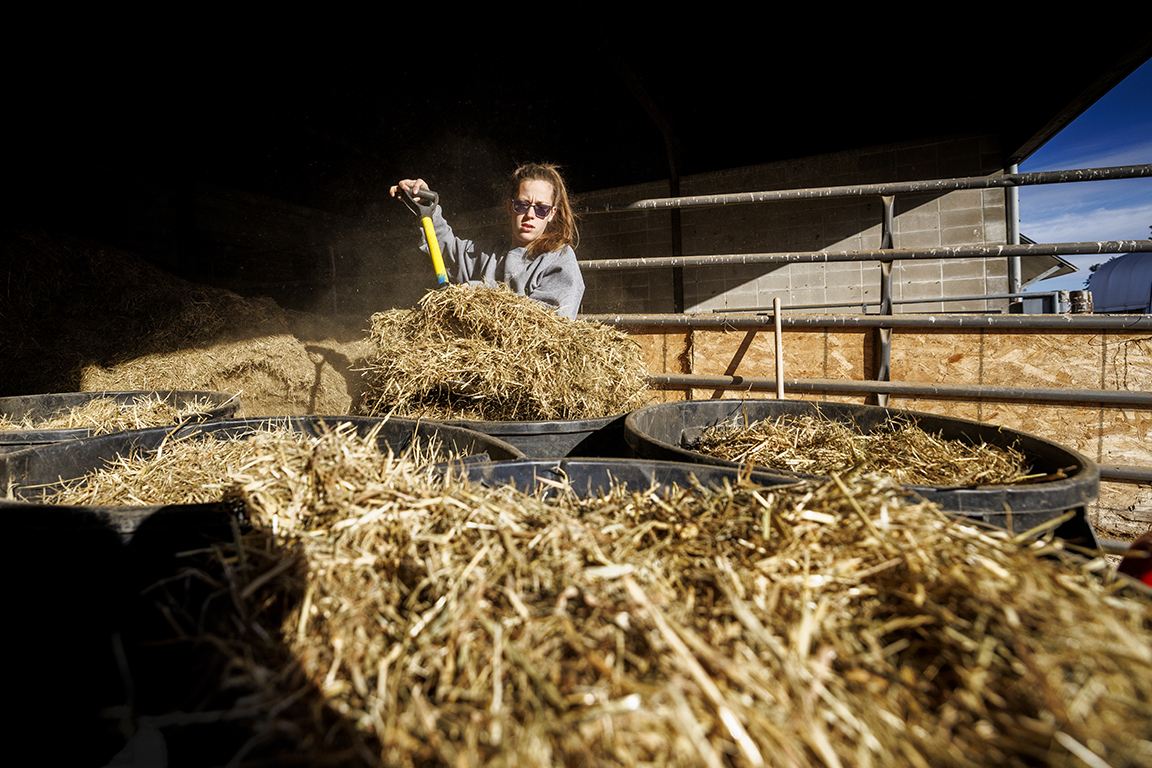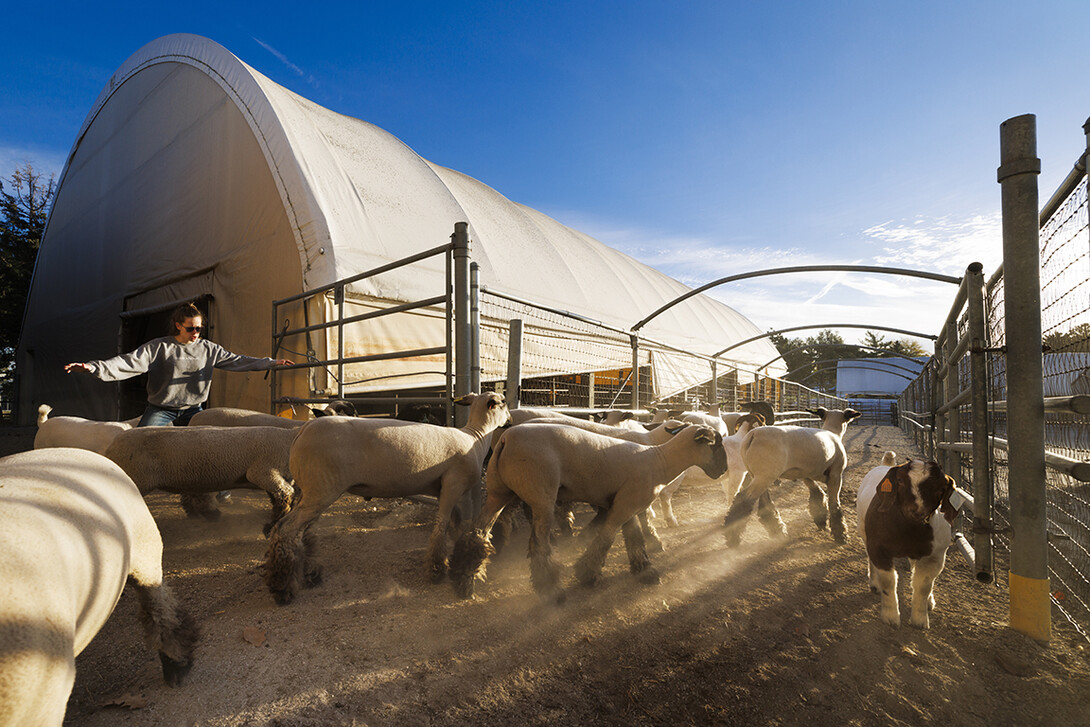
A student job at the University of Nebraska–Lincoln gives new meaning to working from home.
A group of students live and work in the Animal Science Complex on East Campus, caring for the animals in the building. The immersive experience allows the students to contribute significantly to the work in the Department of Animal Science and grow in their knowledge of the field.
Sarah Dilley, a senior animal science major from Lincoln and resident student worker, said the job has made campus home in more ways than one.
“It’s not just a job; I genuinely care what happens around here and what happens with the livestock programs,” Dilley said. “It’s definitely something you take pride in.”
About a half dozen student workers are employed to care for the animals at the Animal Science Complex at any one time, and three live in an apartment in the building. McKenna Carr, a senior animal science major from Ankeny, Iowa, and resident student worker, said she and her colleagues have a sense of dedication to the work that makes it natural to combine work and home.
“We all kind of live to work instead of work to live,” Carr said. “You really have to have that mindset if you’re going to live where you work. We all enjoy the work we do.”
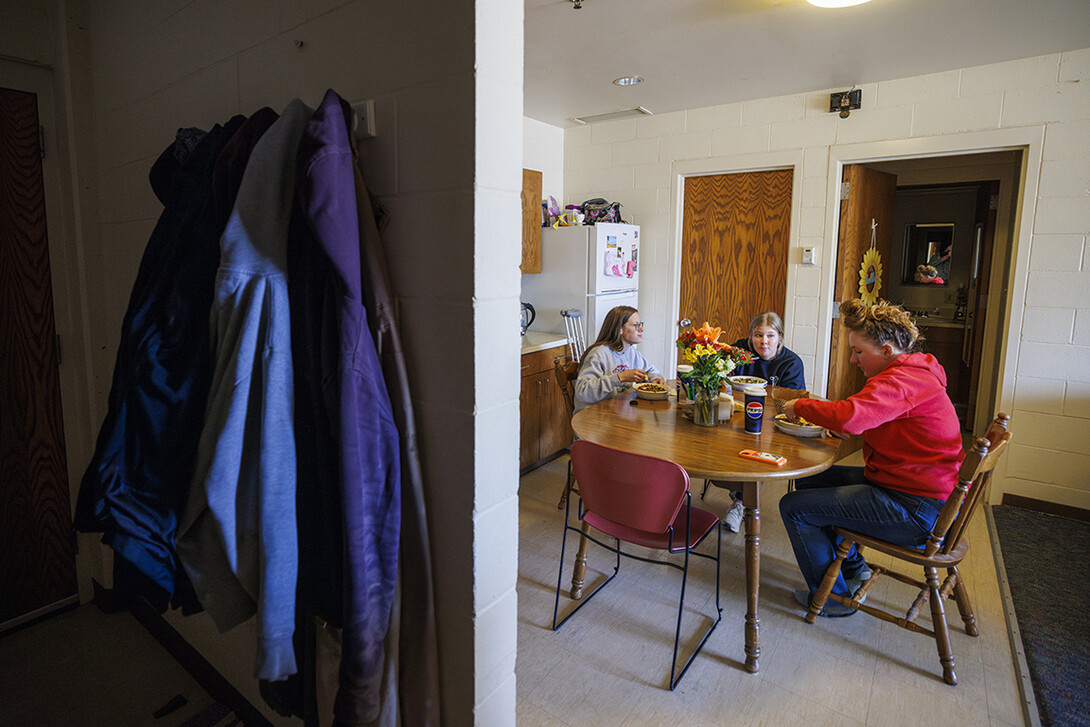
Daily responsibilities include feeding the animals, washing out their pens, preparing animals for use in classes and doing some basic facility maintenance. The students care for about 100 pigs, more than 40 goats and sheep and about 30 head of cattle. The animals are used for teaching, rodeo and some research.
The students who live in the on-site apartment are responsible for any after-hours care, such as sick animals, birthing animals or filling in for others if they are snowed in or otherwise unable to get to campus. Carr said it is rewarding to assist others in the department, such as their supervisors.
“The fact they don’t have to come in every time some little thing needs to be done, and knowing that makes their lives easier, is really nice,” Carr said.
Brent Johnson, livestock and building operations manager and one of the students' supervisors, said the work of on-site students has been a vital part of the department for more than three decades, and the students contribute to various aspects of the work, from livestock care and facilities maintenance to event planning.
“The current students living in the apartment have 10 years of combined service to our department,” he said. “They all live, work and go to class in the same building, which gives them a sense of pride and knowledge of everything that goes on. They are a great group of students that will be lifelong friends after they move on to post-graduation careers.”
Dilley said while they receive training and instruction, they also get significant hands-on learning on the job. She said they are often tasked with solving problems on their own, and that has helped her develop new skills and confidence in her abilities.
“You have to figure some things out on your own,” Dilley said. “You have to learn as you’re doing it, and that really helps you grow.”
Daily chores
Top left: McKenna Carr urges calves down the hallway in the Animal Science Complex to an outside corral so their pens can be cleaned. Bottom left: Breanna Gilmore hoses down the sheep pens. Right: Breanna Gilmore carries the portable milking equipment to the next dairy cow being milked. Gilmore also works for the dairy on campus.
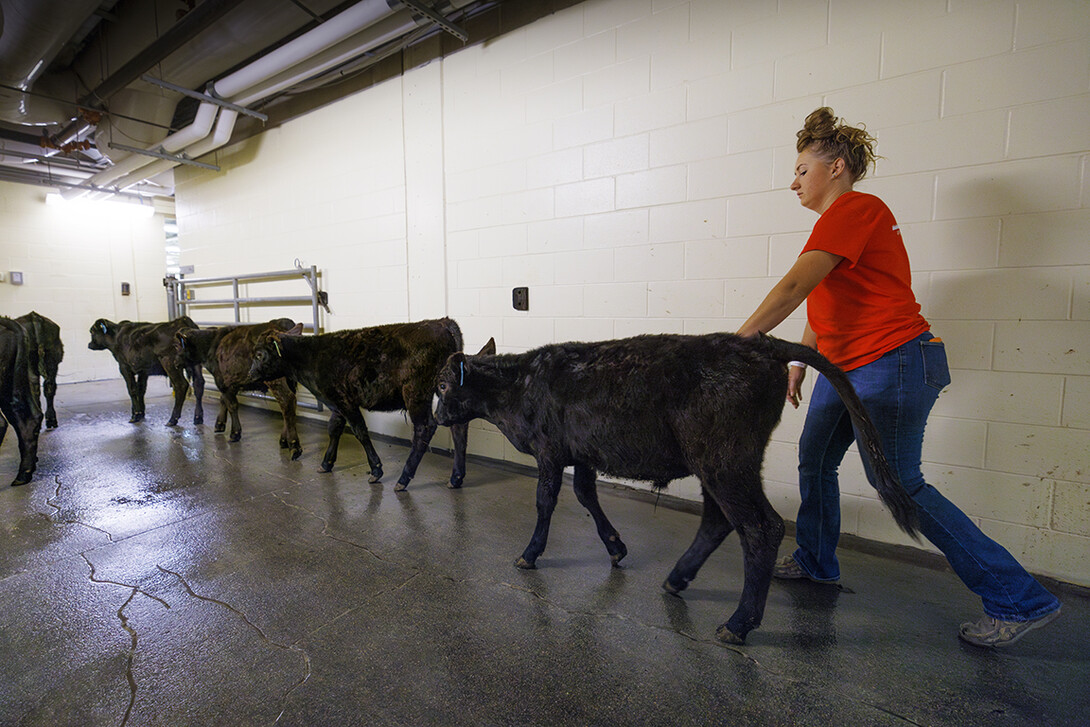
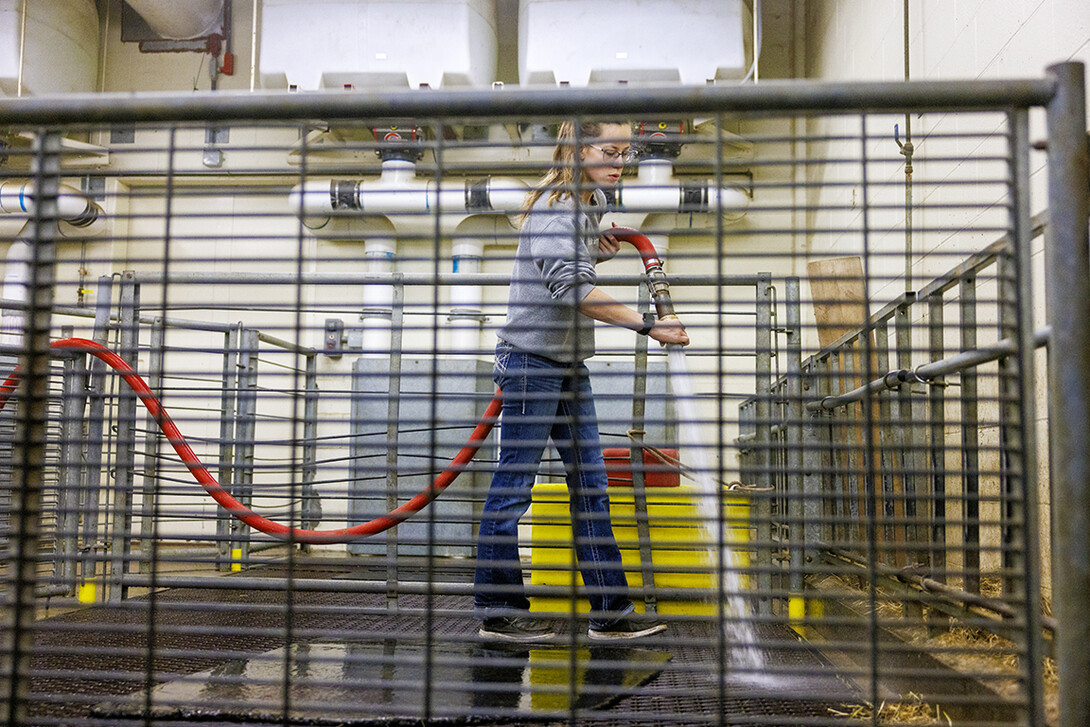
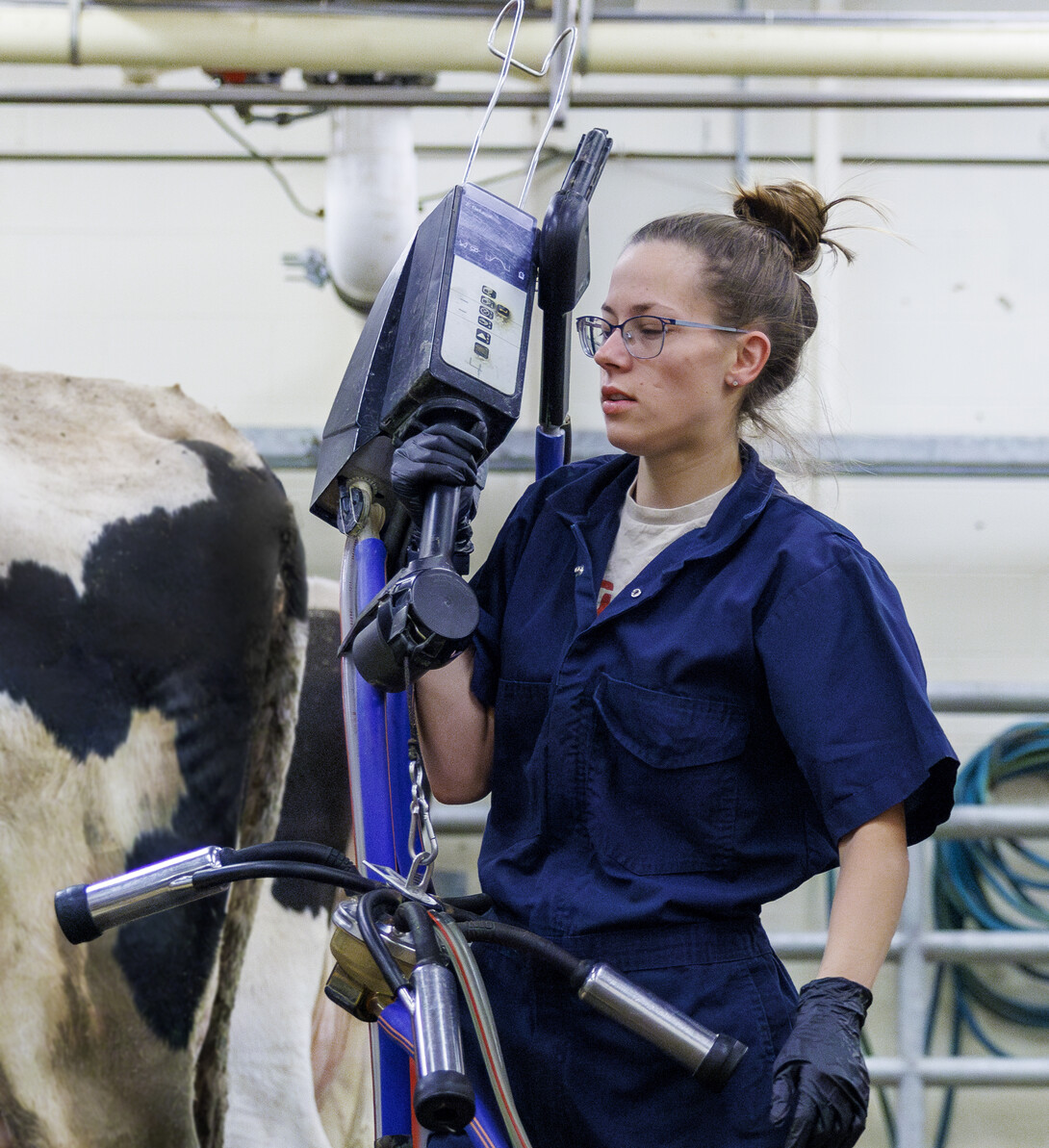
The three resident workers didn’t have a background in working with livestock prior to working for the Department of Animal Science, and Carr said faculty and staff have been patient and supportive while helping the team learn.
“My confidence in my decision making in agriculture has come from this department,” Carr said.
Breanna Gilmore, a senior animal science major from Hastings, Nebraska, and resident student worker, said working so closely as part of the team allows everyone to get to know each other’s skills. Over time, she said she and the others have come together as a group to help each other, and the department, succeed.
“You learn to really lean into each other’s strengths,” Gilmore said. “They know what you’re good at, where you need help and where you can help others.”
The students said in addition to teaching them about skills needed to work in the industry, taking on this much responsibility has improved their leadership skills. They have been able to transition from being beginners in the field to educating the newcomers who followed.
“Being able to take younger students and teach them what we know, I don’t think any of us probably thought we could be capable of that,” Dilley said.
The three current apartment residents all plan to graduate in December. Carr and Dilley are exploring possible options for graduate school in ranch management, and Gilmore is interested in working with either beef cattle or dairy, either in a research or industry capacity. They said sometimes they have the opportunity to take a step back and realize how much their work contributes to the research and education that takes place in animal science and other departments across the college.
“Animal science does a really good job about utilizing our animals to teach everybody,” Gilmore said.
Share
News Release Contact(s)
Tags
High Resolution Photos
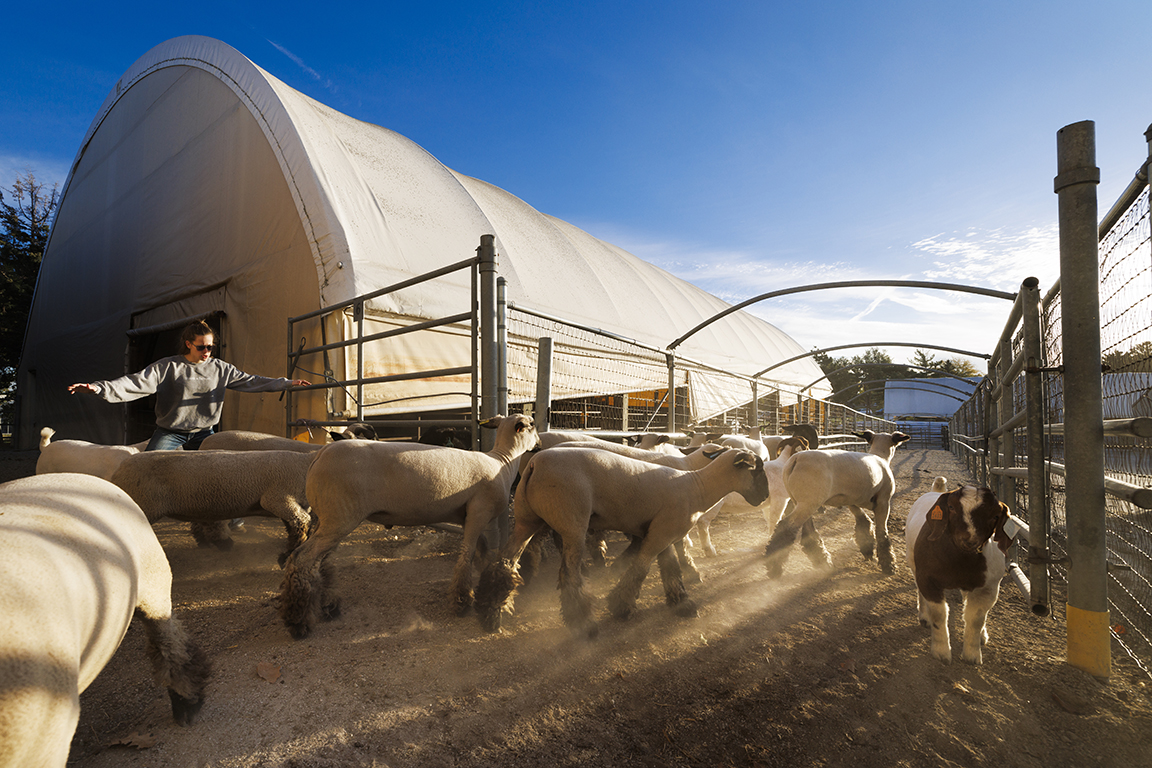
HIGH RESOLUTION PHOTOS
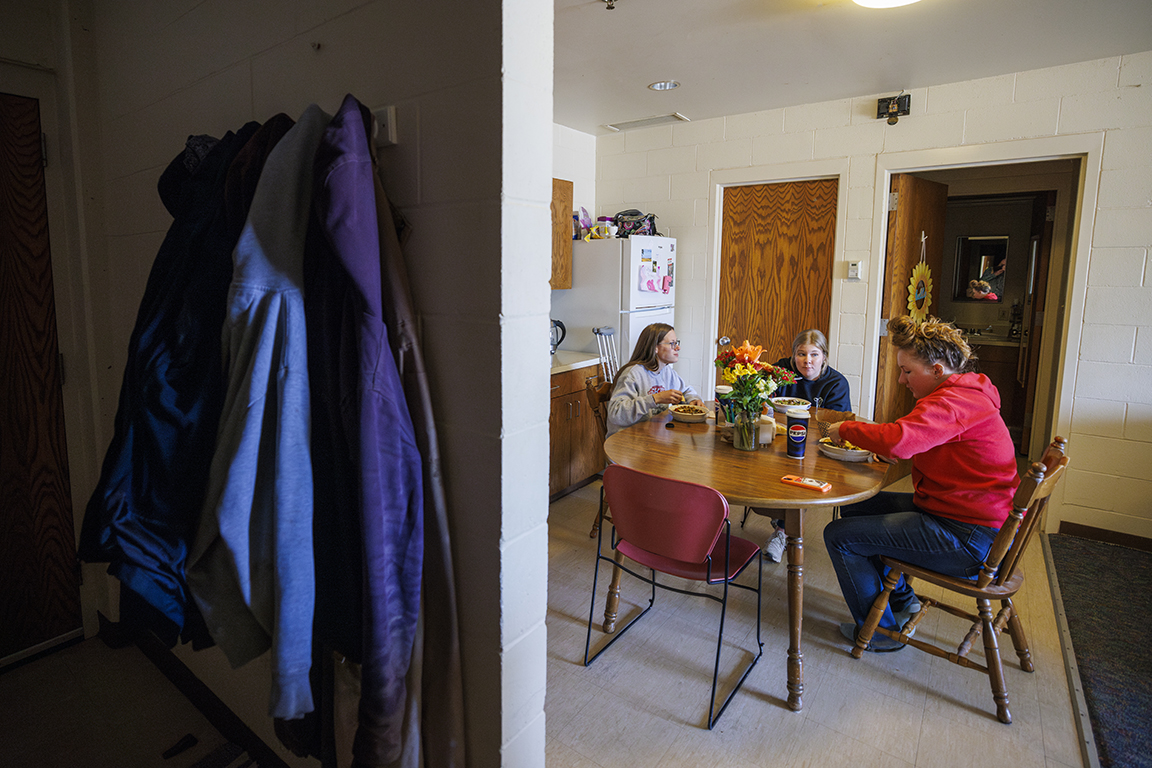
HIGH RESOLUTION PHOTOS
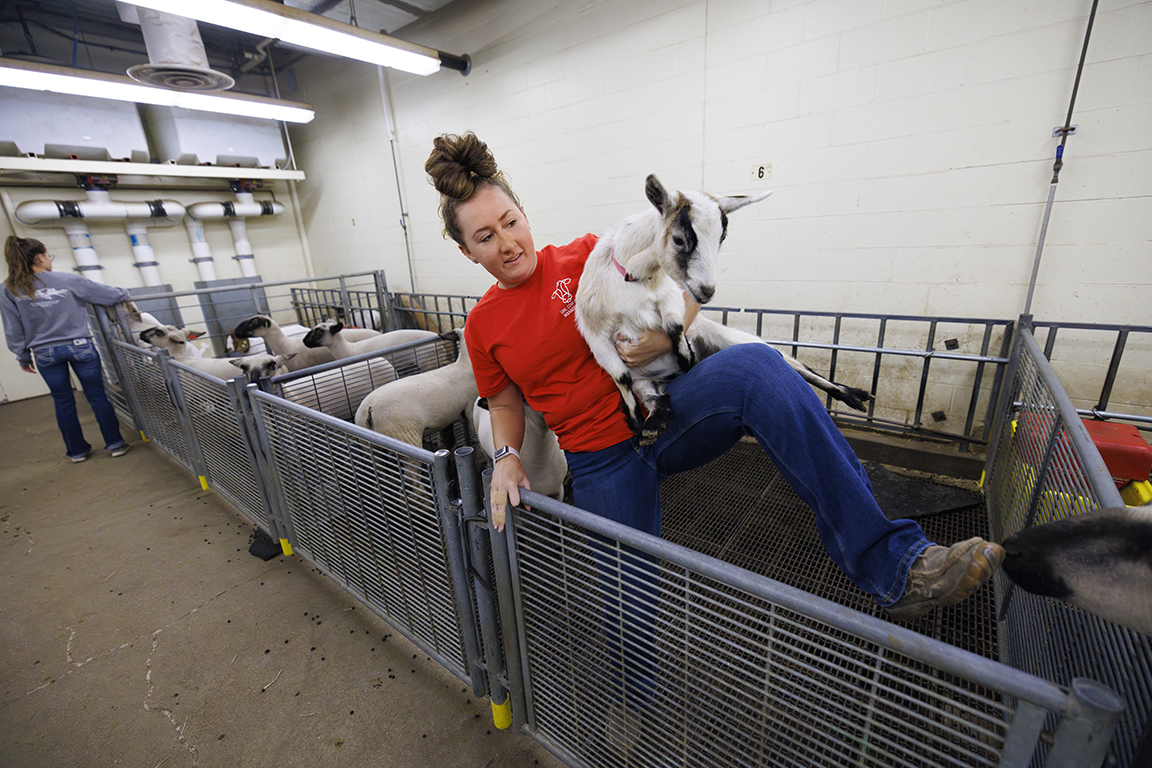
HIGH RESOLUTION PHOTOS

